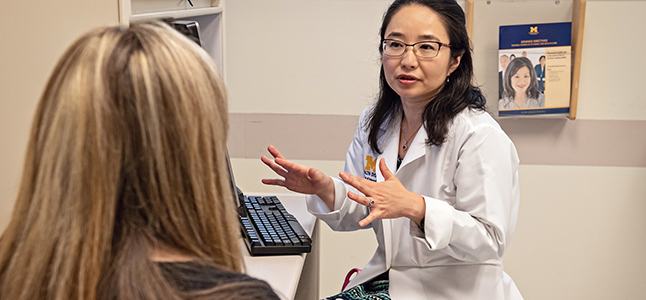What are Clinical Trials?

Clinical research focuses on finding new ways to improve health in people. This may include how to:
- Prevent cancer
- Find cancer
- Treat cancer
- Improve quality of life for people who have cancer
Clinical trials are research studies designed to answer questions about a potential new treatment:
- Is this new treatment safe to use in people?
- What is the right amount of the treatment to deliver the greatest impact on health?
- Will this new treatment benefit more people or help them live longer compared to the best known standard treatment?
- Will this treatment have fewer side effects than the standard treatment?
3 phases of clinical trials
New cancer drugs or treatments must go through a series of 3 phases of clinical trials:
- Phase 1: researchers find out whether the experimental drug or treatment is safe for people and what side effects it causes.
- Phase 2: researchers use phase 2 trials to find out if the experimental drug or treatment is effective against a specific type of cancer.
- Phase 3: researchers test how the experimental treatment compares with the best standard treatment. If the experimental treatment works better or has fewer side effects than the standard treatment, it could be approved by the FDA for widespread use.
Why participate in a clinical trial?
Without clinical trials, there would be no new treatments for cancer. New cancer drugs or treatments must undergo rigorous testing under controlled circumstances to demonstrate they are safe and more effective than established treatments. The U.S. Food and Drug Administration reviews the results of clinical trials to decide whether a new treatment can be used more broadly.
There’s no guarantee an experimental treatment will cure your cancer or extend your life. That’s why it needs to be studied. Whether you receive any direct personal benefit, all research volunteers make an invaluable contribution to research. Many cancer patients who volunteer for clinical trials say they do it to help their children, grandchildren and others who may be diagnosed with cancer in the future.
Find information about clinical trials
- Ask you cancer care team about clinical trials for your type of cancer.
- Talk to a nurse about your options. Call the Cancer AnswerLine™ at 800-865-1125 or email them.
- Search for a clinical trial at the Rogel Cancer Center using our Find a Clinical Trial tool.
- Find other recommended clinical trials resources.
